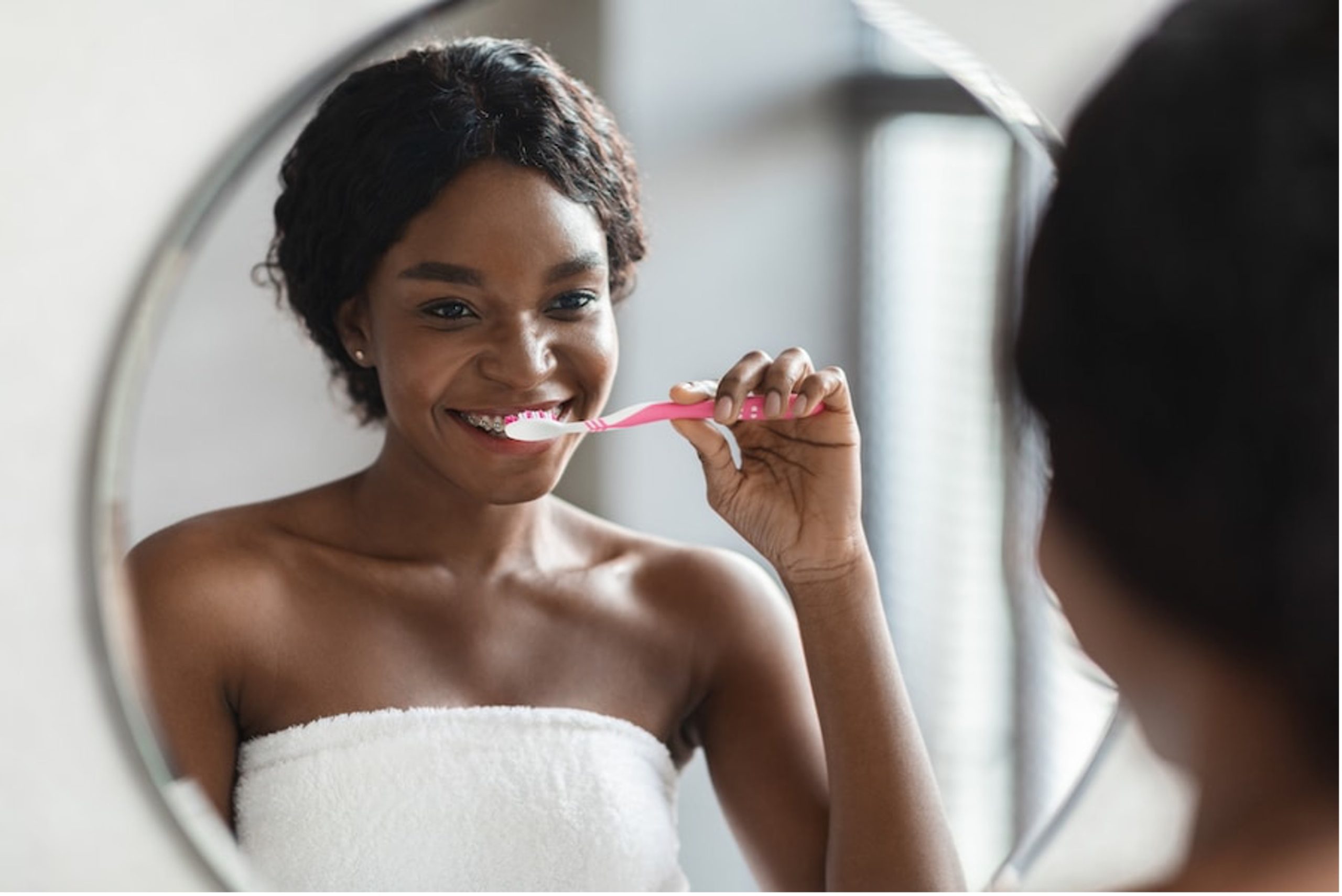Your braces are so important – they’re delivering your new, healthy, gorgeous smile, and working hard along the way. But they can also get in the way of some daily habits, and they need some extra TLC in order to stay clean and undamaged. If you’re feeling frustrated by daily braces care, we have some simple ways to make your braces a priority without them taking over your life. Check out our tips below, and get in touch to ask our orthodontist any questions!
10 Easy Ways to Protect and Clean Your Braces

Keep Braces-Safe Snacks Stocked
There’s nothing worse than finding yourself starving and surrounded by snacks that could easily pop off a bracket or disrupt a wire. Keep your braces-safe foods in mind when you’re shopping so that you always have something appropriate on hand. Keep extra snacks in your bag or desk so that you’re not tempted to take part in food your classmates or colleagues are sharing that just isn’t safe for a mouth with braces.
Build a Travel Oral Hygiene Kit
You’re going to be brushing and flossing more often to avoid plaque building up around your braces. The simplest way to approach this is to create an oral hygiene kit that fits into your daily bag. Go to the drugstore and get a small toothbrush, toothpaste and floss and put it inside a cute water-safe bag that you’ll always be able to have with you. The next time you have something stuck in your braces or have an unexpected snack, you’ll be able to duck into the nearest bathroom and get cleaned up ASAP.
Think Ahead to Avoid Dangerous Food Temptations
Going to the movies? Make sure you have a snack with you (permitting theater rules, of course) so that you’re not sucked into the glamorous world of popcorn and Starbursts. Bringing an appropriate snack to an event that you know is going to be rich with foods dangerous for braces will help you avoid temptation (and orthodontic emergencies).
Make a Braces Calendar
Struggling to remember when your next orthodontic appointment is, or when to switch to new Invisalign aligners? Create a dedicated Google calendar or buy a paper monthly calendar that you can dedicate to your braces. Mark down your appointment dates, aligner dates, whether you should be wearing rubber bands – anything you’re likely to forget that could throw you off your treatment schedule.
Stock Up on Soft Foods Before Monthly Appointments
After each monthly appointment, your teeth are going to be a bit tender as they adjust to your new arch wires or aligners. Shop before your appointment so that you have your favorite post-appointment foods in the fridge – yogurt, mashed potatoes, soup, ice cream, bananas, whatever you can chomp on without setting off tender teeth. This will make that sore day much more pleasant!
Find Oral Hygiene Products You Love
Starting braces is a perfect opportunity to upgrade your oral hygiene. Ask Dr. Feinstein for product recommendations that will make your braces cleaning a cinch. You’ll be much more likely to clean your teeth often when you’re using products you actually enjoy.
Keep A Water Bottle in Your Bag
Hydrating is always important, but is even more so when you have braces. Water will help wash away food particles and acids after you’ve eaten, to keep your teeth clear of plaque. Swish the water in your mouth before swallowing to help clean your brackets. Drink water throughout the day and you’ll likely find yourself feeling better and more refreshed as well – a great side effect!
Replace Your Toothbrush More Often
You should typically replace your toothbrush or electric brush head every three months. When you’re brushing braces, your toothbrush typically wears down a bit faster. It’s a good idea to replace your toothbrush every two months to help keep the bristles strong and effective.
Get Extra Supplies
Make sure you’re prepared at all times. In addition to the toothbrush, paste, and floss in your travel hygiene kit, add some wax and rubber bands. You’ll be able to cover an offending wire or replace a broken elastic right away and avoid any discomfort.
Wear a Mouthguard When Active
Mouthguards are crucial when taking part in contact sports – and even more so when braces are added to the mix. If your mouth is injured while you’re playing, you could experience a more serious injury if your brackets are pressed into your lips, cheek, or tongue. Ask Dr. Feinstein about mouthguard recommendations at your next appointment.
Still have questions about the best ways to care for your braces? Get in touch today – we’re always happy to talk orthodontic tips!
